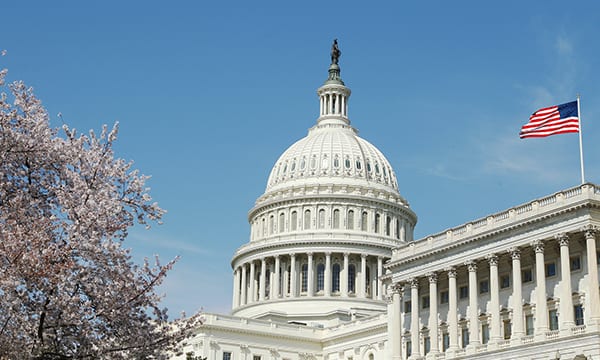7/22/2016

FYI — Before the Senate recessed, two legislative proposals were passed affecting substance abuse and housing programs that we wanted to bring to your attention. Very high level summaries are provided below and more detailed information will be provided in the coming weeks. Please let me know if you have any questions.
The Comprehensive Addiction and Recovery Act
On Friday, President Obama signed into law the Comprehensive Addiction and Recovery Act (CARA) which has been viewed by many as a major step to address the national opioid epidemic. While the legislation does not include funding, many Members of Congress have pledged to provide resources to back up the bill through the appropriations process later this year.
Some highlights of the legislation (a more detailed summary is being prepared).
Specific to child welfare, the legislation would amend the Child Abuse Prevention and Treatment Act (CAPTA) provisions regarding Plan of Safe Care. These changes will:
- require the Department of Health and Human Services (HHS) to maintain and disseminate information about the requirements and best practices relating to the development of plans of safe care for infants born affected by illegal substance abuse, withdrawal symptoms, or a Fetal Alcohol Spectrum Disorder;
- require the state to receive CAPTA funds to certify that it has a state law or statewide program relating to child abuse and neglect that includes a plan of safe care that ensures the safety and well-being of an infant following release from the care of healthcare providers; and
- require the state plan of safe care to (1) address the health and substance use disorder treatment needs of the infant and affected family or caregiver; and (2) specify the development and implementation by the state of plan of safe care implementation monitoring systems.
Other provisions in the legislation will
- Authorize the Substance Abuse and Mental Health Services Administration (SAMHSA) to create a pilot program to award competitive grants to state substance abuse agencies to support family-based services for pregnant and postpartum women with a substance use disorder.
- Authorize SAMHSA to award grants to state, local, or tribal governments or community-based organizations to expand treatment programs, including medication-assisted treatment programs, in areas with a high rate or rapid increase in prescription opioid or heroin use.
- Allow HHS to award matching grants to recovery community organizations to expand, develop, and enhance state and community recovery support services to facilitate long-term recovery from substance use disorders.
- Allow HHS to award grants to state, local, or tribal governments or nonprofit organizations to develop, implement, or expand treatment alternative to incarceration programs and to enhance state criminal justice and substance abuse agency collaboration to address prescription opioid abuse and heroin use.
- Allow HHS to award grants to high schools, institutions of higher education, or nonprofit organizations to provide recovery support services, build supportive communities for young people in recovery, and promote sustained recovery for young people with substance use disorders.
The Housing Opportunity Through Modernization Act of 2016
The Housing Opportunity Through Modernization Act of 2016 (S. 3083/H.R. 3700) was passed by Congress and is expected to be signed into law by President Obama. It was passed with unanimous consent from both the U.S. House of Representatives and the U.S. Senate.
The legislation makes changes to public housing programs and includes changes specific to the Family Unification Program (FUP), a federal program under which housing vouchers are provided to 1) families for whom the lack of adequate housing is a primary factor in the imminent placement of a child in foster care or the reason for a delay in permanency; and 2) youth who have aged out of foster care without adequate housing and are at risk of homelessness.
Changes in the legislation would:
- Extend the time a youth who has aged out of foster care can participate in FUP to 36 months. Current law restricts the amount of time a youth who has aged out of foster care can access the FUP to 18 months. Assistance for families with a FUP does not have a time limit.
- Expand the FUP eligibility for youth who have aged out of foster care after age 16 and are currently aged 18-24. Also expands eligibility to otherwise eligible youth who will leave foster care within 90 days and are homeless or at risk of homelessness. Current law allows youth FUP eligibility if the age out of foster care after the age of 16 and are between the ages of 18-21.
- Allow FUP vouchers to be project based, which means a housing authority can now tie the assistance to a unit instead of to a youth, putting multiple vouchers in a complex.
- Require the Department of Housing and Urban Development (HUD), in consultation with other appropriate federal agencies, to issue guidance to improve coordination between housing and child welfare agencies in administering FUP.

